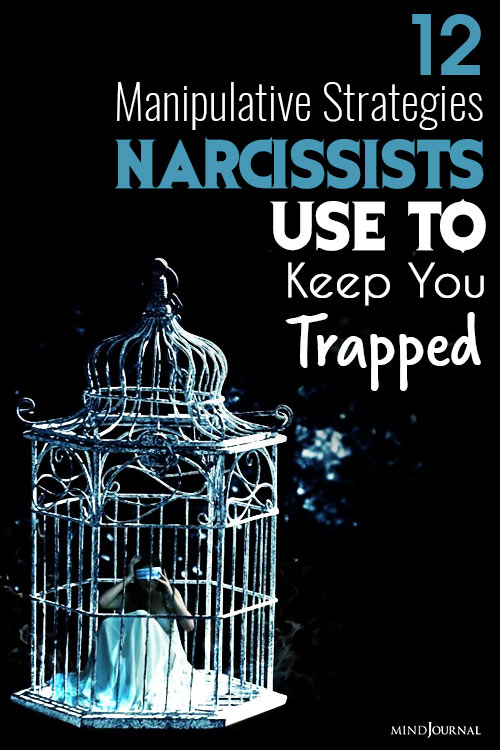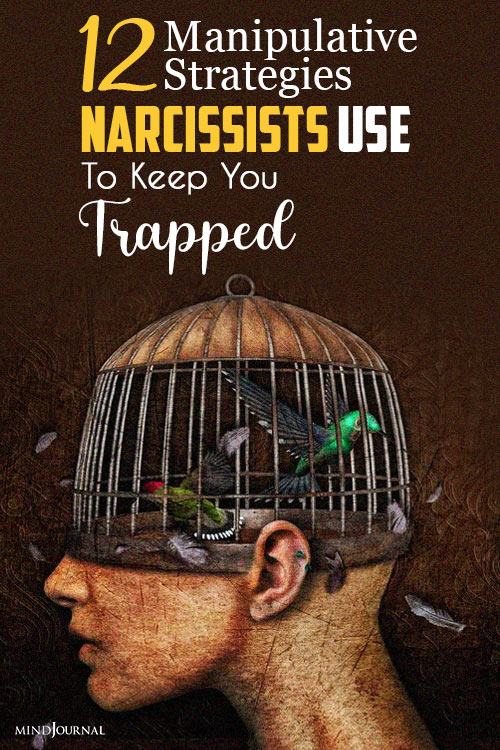You have lived through a life of gaslighting and now you are stepping out of it. You are ready to break up with the narcissist. You are escaping narcissistic abuse. Even with your preparation, even with your great Stage-4 work, and your mastery of Observe Don’t Absorb (ODA) and the strike rule, it is going to be difficult.
It starts with the narcissist becoming scared. They start to lose their power and ODA, and you start to see a scared, frightened, weak person.
But all of a sudden, they bluster the aggression that they used. The passive or overt aggression that they used to scare you into submission. You are starting to see the impact of Gaslight neutralization. You begin to realize they never were as strong as they claimed, and you were never as ‘bad’ as they said. This is when a rapid shift starts.
That shift is why Stage-5 requires so much preparation.
This is the point where they do not want to fight anymore because of the potential consequences. So, what do they do? They fight against this stage.
As you enter Stage-5, you will notice 12 predictable subsequent stages immediately following.
What Happens When You Break Up With A Narcissist
1. Turn Up the Gas – Manipulative
A common tactic used by narcissists as you enter this stage is to turn up the gaslighting. They will tell you that no one will believe you, the cops did not listen to you last time, you are just a hysterical woman.
For example, imagine a person is twenty pounds overweight. She is gorgeous and twenty pounds overweight. But she has been gaslit into believing that she is obese, or she is too short, or too tall or she did not graduate college, or whatever the case may be.
The narcissist gaslit her to believe that she is just not good enough to live on her own and she will fail. They will turn that up. This is where we observe instead of absorbing it, and this neutralizes their strategy.
Related: 5 Types Of Psychological Manipulation And How To Deal With Them
2. Aggressive and Threatening
If the gaslighting does not work, because it will not, because you are observing and not absorbing, and you know exactly what they do, then they start to get aggressive. They start to use bullying and threats. Now the aggression and the threats look different based upon the narcissist. That is why it is critical you know your narcissist.
For example, the borderline is going to act much differently to this than the person who is an ASPD (Antisocial Personality Disorder). ASPDs are calm as a cucumber, they do not have empathy, they are just doing everything calmly just so they can break you down. They do not have narcissistic tendencies, they might decide to hurt you, but it is not because of rage they just think they want to punish you because you deserve it.
The covert narcissist is the most dangerous, however, because they have survived by creating an exterior of being loved, respected, and liked. Typically, they are someone of power within the community. Perhaps a politician, teacher, or even a psychotherapist. These are the narcissists who have the strongest reaction to this strategy. This is because ASPDs are sociopaths.
I must repeatedly show my clients in these situations that there never was a connection, there never was love, and that this person is truly incapable of any type of connection or emotion.
As my clients begin to see that the narcissist they are with doesn’t have friends, is incapable of being in any other relationship, and doesn’t understand emotions, I then introduce the concept that ASPDs have to have a backstory to justify themselves. They do this to look normal in the world they exist within. This may require them to have a family, a husband, or a wife. Armed with this backstory, they can go forth and live the life they want.
Many of my SLD/codependent clients have ASPD spouses or partners and wake up to this reality in horror, recognizing this person cannot connect and never has. They also begin to see the dangers of this person because once you take away their backstory, they cannot function in the world or act human.
These covert narcissists can pull off being human because they build these relationships with ASPDs, but once they lose that connection, they have a reaction because they understand what it means for their backstory.
Alternatively, the garden-variety narcissists simply explode outward. People with Borderline Personality Disorder say they hate you and want to hurt you, then they say I love you, don’t leave me. BPDs eventually threaten suicide if you dare to leave them. The fear of abandonment is at the core of Borderline Personality Disorder—whether real or perceived.
Even if this fear is not rational at times, if you do eventually decide to leave them, validating their biggest fear, the next step could potentially be suicide. Many people with BPD will attempt to commit suicide to bring you back.
Unfortunately, this often makes people feel trapped.
I have had many codependent/SLD clients who were trapped because they knew that their partner would kill himself or herself, and they do not want their children to suffer as a result. And it is a hard sell as a psychotherapist to tell clients that they simply cannot stop him or them from killing themselves.
You may even have to deal with their death, and it will be horrible, but you must live your life no matter what happens.
My job is to get my clients to understand that if this does happen, it is not their fault. It is critical to prepare for that to potentially happen. To do this, we examine what type of narcissist they are dealing with, and how they may respond to the end of this relationship while building on the momentum built-in Stage-5.

3. Passive or Covert Aggression
If outright aggression does not work, then they will go underground.
4. Sabotage, Triangulation, Poisoning Minds
The narcissist will involve a third person in the relationship in order to violate a boundary, hurt, control, protect, or punish the codependent/SLD. At this point friends, family, and kids are also victims of narcissistic abuse.
Related: What Is Triangulation In Emotional Abuse (With Examples)
5. Willing (Insincerely) to Negotiate
If and when the aggression strategy doesn’t work, they start to negotiate.
Be ready for your partner to suddenly quit drinking, cheating, gambling, or doing any of the things you have been begging them to quit for years. They realize that you are serious. They know they have to pull out all the stops to get you to stay.
But thanks to Stage-4, you are not surprised. You do not wonder if this time it is for real and don’t negotiate. You realize this means nothing and you understand that your narcissist is simply trying to pull you back in, not change.
6. Agreeing to Stop Problems
The next stage is agreeing to stop the problems. Maybe they agree to go to therapy. Every so often my SLD will tell me, “he is finally ready to go to therapy, maybe this is the chance”.
I remind her or him of the narcissistic personality disorder traits, and how the person they are dealing with does not think they have a problem, and this is simply their last-ditch effort.
If my client does not believe me, I ask them to ask their narcissist a question, “Why do you want to go to therapy?” The follow-up question to that is, “What will you do in therapy?”
What do you expect they will say?
They say I want to go to therapy because I want to keep you from leaving me, so I can save our marriage. You will not hear that they want to stop gaslighting you. That they want to work on their selfishness, self-absorption, or grandiosity. Those would be sociopathic responses because they do not believe any of that.
Related: Rationalizing Manipulation: How Narcissists Take Advantage Of You
7. Agreeing to Go to Therapy
Many therapists do not understand narcissistic behavior. These individuals will present themselves as these aggrieved, misunderstood people, and they typically find a therapist who is unaware of what pathological narcissists do. These therapists will then sympathize with the individual and in turn, make them feel better about themselves and what they are doing.
The first time a therapist suggests that a person might be lying or being hypocritical the relationship is over. The therapy ends prematurely, or it just ends because it is difficult for a narcissist to talk about themselves.
8. Humanizing Themselves
If going to therapy fails to win you over, and you still want a divorce, the narcissist tries to humanize themselves. There are many situations where this works with SLDs.
Narcissists neutralize break-ups by humanizing themselves. All of a sudden, they emotionally recount horrific stories of childhood abuse, neglect, and/or abandonment. They will talk about how much they are hurting inside and beg you to understand them.
By triggering the SLD/Codependent’s caretaking, over-empathizing, and sacrificing tendencies, the resolve to flee the relationship is neutralized. And when the “sad” “victim” narcissist pleads like a child to not be abandoned, the hook is deeply set. For someone who is not fully immersed and dedicated to their SLDD recovery, this works.
Related: 7 Sneaky Things Narcissists Say to Get You Back
9. Begging for Another Chance
When this narcissistic tactic does not work, they beg for another chance. “Please don’t leave me, I need you, I love you, I will change, I will change baby…” etc.
10. Suicide Threats or Attempts
I previously mentioned that people with Borderline Personality Disorder will go there quickly. But other pathological narcissists will also talk about depression or suicide. They have no intention to do it and will not attempt it, but they will make it known to their partner.
It is like pretending to choke yourself to death and then finally on the final minute you let go. That is what a narcissist does with a suicide attempt. They threaten it to scare their partner into believing it to be real. That uncertainty generates fear.

11. All Out Destruction
When suicide threats do not work, the last gasp is all-out destruction narcissistic abuse.
There are different versions of this based on the type of narcissist you are dealing with. If they are a covert narcissist, their attempt at destruction will be different than a garden-variety narcissist, as will a sociopath. If you have followed along you know all about this and you will not react to their attempts to destroy you.
12. Replacement
Finally, the narcissist decides to cut their losses and look for someone else. It is important to understand this and know that they will do everything they can to stop this process. If you can see ahead of time where things are going, you can keep yourself from being seduced into their behavior. You will eventually get at this step if you follow through.
Related: Narcissists And The Codependency Dance
The Hardest Maneuver to Avoid
Avoiding these behaviors is not rocket science. Of all the 12 maneuvers, number seven, or the humanizing, is the one that most often convinces codependents/SLDs to stay.
As a narcissist gets to this step, they portray themselves as broken or suffering. Remember they know that the SLD is empathetic, they know the SLD believes that everyone deserves a chance, everyone should be loved. This is what they prey upon, the SLD’s empathy, forgiveness, and accepting nature. They will disclose their child abuse, core shame, the fact they have no friends, or their self-hatred. This is a repeat behavior, and I see it with many of my clients.
They will plead with the SLD to not abandon them, and it is as real as it is contrived. They are afraid of being abandoned, so you see their real, human side. In people with personality disorders, this is when the window opens.
They begin to connect to their attachment trauma, and you may even start to see them looking like broken children. They are having a breakthrough to what I call the dissociative barrier and are connecting to their inner hurt child.
Related: Why Do Narcissists Project Their Wounds Onto You?
This can be a scary and disturbing moment because it is a form of regression. You are watching them as the child that they were when they were hurt. The fear, loneliness, and shame break through the repression barrier, and you are left to pick up the pieces.
For more information about Ross’s resources, seminars and workshops, write us at [email protected] or visit Self-Love Recovery Institute.
This is extracted from the 5.5-hours Ross’s video seminar: Escaping Narcissistic Abuse.
Check out Ross Rosenberg’s blog, The Human Magnet Syndrome for more informative articles.
Written By Ross Rosenberg
Originally Appeared On Human Magnet Syndrome










Leave a Reply
You must be logged in to post a comment.